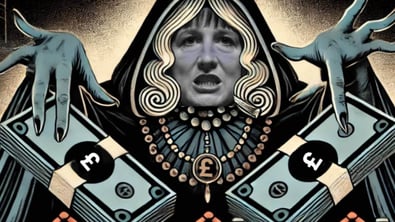However, with demand and supply side issues in the market – and a new Prime Minister to boot, there is changes to market conditions expected.
What will happen to UK house market prices in 2023? This blog post anticipates.
What has happened to house prices over time?
In 2017, the government abolished Stamp Duty for first time buyers purchasing a property up to £300,000. Stamp duty is the tax paid on property prices within a given band. House prices increased by 3% in the year to January 2017.
The house market shrugged off Brexit uncertainty, ending 2019 1.4% higher than at the start of the year.
During the pandemic, the government and central bank took measures that would ensure that the property market didn’t crash. This included the furlough scheme, the stamp duty holiday and a ban on tenant evictions. House prices increased 10.2% in the year to March 2021.
What was the impact of 2022 on UK house prices?
In 2022, house prices continued to grow.
According to the Nationwide House Price Index, prices grew 10.7% in the year to June and 11.2% in the year to May.
Robert Gardner, Nationwide’s Chief Economist said:
“UK annual house price growth slowed modestly to 10.7% in June, from 11.2% in May. Prices rose by 0.3% month-on-month, after taking into account seasonal effects, the 11th consecutive monthly increase.
“The price of a typical UK home climbed to a new record high of £271,613, with average prices increasing by over £26,000 in the past year.
“There are tentative signs of a slowdown, with the number of mortgages approved for house purchases falling back towards pre-pandemic levels in April and surveyors reporting some softening in new buyer enquiries. Nevertheless, the housing market has retained a surprising amount of momentum given the mounting pressure on household budgets from high inflation, which has already driven consumer confidence to a record low.
“Part of the resilience is likely to reflect the current strength of the labour market, where the number of job vacancies has exceeded the number of unemployed people in recent months. Furthermore, the unemployment rate remains close to 50-year lows. At the same time, the stock of homes on the market has remained low, which has helped to keep upward pressure on house prices.
Where is the current state of the UK property market?
The current property market is in good health with 8.1% house price growth in the year to October.
However there is a lot going on that investor need to keep a watchful eye on. According to Zoopla:
“The political and economic turmoil over the last few weeks has resulted in average mortgage rates spiking above 6% with ongoing uncertainty over the outlook for the UK’s public finances and economy. The health of the housing market is inextricably linked to the health of the economy and, in particularly, the cost of borrowing.
“The sudden increase in mortgage rates represents the largest interest rate shock for new buyers since the late 1980s. The immediate impact has been on households without mortgages arranged at cheaper rates, most of whom are sitting on the side-lines.
“This explains why our measure of new buyer demand fell by a third since the mini budget. It is similar to what typically happens in late November ahead of the Christmas slowdown. The drop in buyer interest has been spread uniformly across all markets. However, those with cheap loans secured, as well as cash buyers, are continuing to make offers and agree sales, albeit at a slower rate than last year, down 25% on a year ago.
“Pent-up demand remains to move retains. Households rushed to secure low-cost mortgages over summer as rates started to rise. Bank of England data for mortgage approvals showed an unseasonal jump in mortgage approvals in August, up 17% over the month.
“This demonstrates an underlying desire to move among a proportion of households, driven up by the pandemic and other factors.
“The shock to demand comes at the end of another strong year with 293,000 deals in the pipeline, most of which are expected to complete. Fall-throughs are increasing, mainly a result of a lack affordable finance but we are still on track for nearly 1.3m sales in 2022.”
What is happening with UK mortgage rates?
Mortgage rates are set to have a significant impact on the UK housing market outlook.
The high inflation is primarily causes by an increase in wholesale gas prices which has been made worse by Russia’s war in Ukraine.
Zoopla continued:
“The outlook for transactions and pricing in 2023 in sensitive to the economic climate. It will also be impacted by how much buying power – due to higher borrowing costs – feed into achieved prices.
“The most important part of this equation is how long mortgage rates for new buyers stay over 6% and how quickly they might fall back to 5% (a level seen as a tipping point for house prices). Should mortgage rates fall back quickly in the next quarter, the outlook for next year will be very different compared to the prospect of mortgage rates remaining at or above 6% for the next 12 months.”
What is happening to the rental market?
There is a knock-on effect from the base rate and mortgage rents to individual rent prices.
If interest rates rise, borrowing becomes more expensive. This impacts the cost of buying a house (via a mortgage), a car on finance or other things that incur an interest charge.
For a £130,000 property, an increase or decrease in the mortgage rate can impact monthly repayments by £70.
The current circumstances mean many landlords will face higher mortgage payments.
David Hollingwood of L&C Mortgages said that these rates would be passed on to rental tenants:
“Landlords at the end of their fixed rate mortgage term will have issues refinancing. Instantly, their outgoings have increased… which might be passed on to the tenant.
Demand for rental property over the last few years has been underpinned by the lack of mortgage affordability. This could mean that there is more demand for rental property, not less.
What will happen to house prices next year?
Lloyds Banking Group has predicted that house prices will fall by 8% next year.
The group – that also owns the Halifax – predicted that the UK economy will shrink by 1% in the next year. Inflation will peak at 10.7% and unemployment will rise to 5.5% by early 2024.
Lloyds warns that the Bank of England base rate will reach 4% next year.
William Chalmers, Lloyds chief financial officer, said the bank was likely to see a slowdown in mortgage lending over the next year due to the tougher economic environment. However, the group expects most of its mortgage customers to withstand cost-of-living pressures.
Anthony Codling told Property Industry Eye, “When Lloyds Bank say they expect house prices to fall by 8% next year, people sit up and listen. Lloyds Bank is the largest mortgage lender in the country and therefore, in theory, at least, should have the hottest handle on house prices. When you’re responsible for around one in three mortgages, it is very important to get your call on house prices right.
“However, in our view, Lloyds Bank takes a prudent or conservative view when looking at house price forecasts and it is more prudent to prepare for the worst and hope for the best rather than prepare for the best.
“Lloyds Bank’s recent house price forecasts have tended to be too low, house price inflation has exceeded their forecasts in both 2020 and 2021, and this past performance plays into our theory that their modelling is conservative rather than hopeful.
“We must also remember that Lloyds has also had to publish their forecasts before the new Chancellor presents his new economic plan and given the recent Government budget u-turns, it is a brave person who makes short term and near-term economic predictions before the chancellor has had his say.”
Analysts at Capital Economists predict the decrease could be 4.8% by the end of 2024.
It said the resulting peak-to-trough fall of 5% would reverse a small chunk of the surge in prices since the pandemic began.
The fall would be due to rising inflation and a ‘sharp rise’ in mortgage rates in the month ahead.
But the report predicted against a substantial drop in house prices, seen in 1990 and 2008.
The report said, “While the house price-to-earnings ratio is roughly the same now as it was in 2007, we do not anticipate a return to pre-financial crisis mortgage rates of 6%, so the cost of mortgage repayments will remain much less of a burden.
“Customers may find it more difficult to pass affordability tests for mortgages from now on – or have to look at cheaper properties – as many lenders are factoring the rising cost of living into their calculations.”
Other house price forecasts have predicted growth in house prices over the next 12 months.
Estate agent Frank Knight predicted that house prices would grow by 1% in 2023 and 2% in 2024.
Tom Bill from Frank Knight said, “Some of the heat inevitably has to come out of the UK housing market as the distortive effect of the pandemic works its way through the system.
“The wave will have to break at some point and we expect price growth to slow down this year as mortgage rates and the cost-of-living rise.”
What are the opportunities available for property investors?
There are plenty of opportunities in the current conditions available to property investors.
The gradual decrease in property prices presents an opportunity for investors to purchase property for cheaper than it has been. These prices are set to rise again in the long-term based on historic trends.
There is also less buying competition on the market at the moment due to the higher barriers to obtain a mortgage, this means that securing the house or apartment of choice is more achievable.
The decrease in the price of pound compared to overseas currencies also makes the UK market more attractive to overseas investors.
There is also likely to be an increase in renters on the market due to the current conditions, this means greater choice between tenants in buy to lets and could lead to the potential of charging a higher price.
In recent economic downturns there has also been a trend towards UK tourism, boosting the potential of UK serviced accommodation.
For more information call us on 01302 897131 or email office@touchstoneeducation.co.uk.












